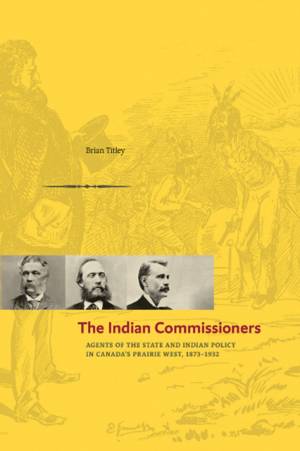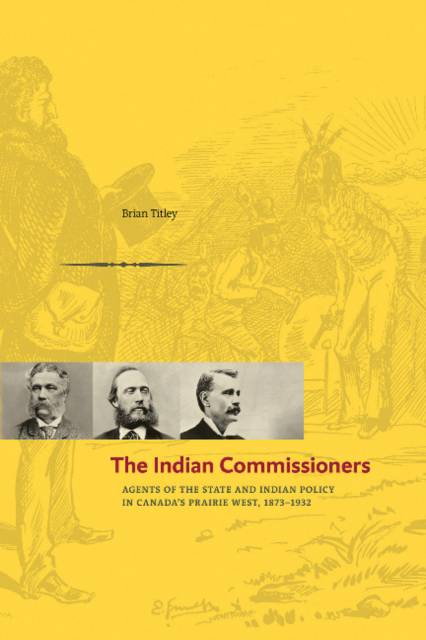
- Retrait gratuit dans votre magasin Club
- 7.000.000 titres dans notre catalogue
- Payer en toute sécurité
- Toujours un magasin près de chez vous
- Retrait gratuit dans votre magasin Club
- 7.000.0000 titres dans notre catalogue
- Payer en toute sécurité
- Toujours un magasin près de chez vous
The Indian Commissioners
Agents of the State and Indian Policy in Canada's Prairie West, 1873 - 1932
Brian Titley
Livre broché | Anglais
47,45 €
+ 94 points
Description
Between 1873 and 1932, Indian policy on the prairies was the responsibility of federal government appointees known as Indian Commissioners. Charged with incorporating Native society into the apparatus of the emergent state, these officials directed a complex configuration of measures that included treaties, the Indian Act, schools, agriculture, and to some degree, missionary activity. In this study, Brian Titley constructs critical biographical portraits of the six Indian Commissioners, examining their successes and failures in confronting the challenges of a remarkable period in Canada's history.
Spécifications
Parties prenantes
- Auteur(s) :
- Editeur:
Contenu
- Nombre de pages :
- 288
- Langue:
- Anglais
Caractéristiques
- EAN:
- 9780888644893
- Date de parution :
- 01-03-09
- Format:
- Livre broché
- Format numérique:
- Trade paperback (VS)
- Dimensions :
- 150 mm x 226 mm
- Poids :
- 430 g

Les avis
Nous publions uniquement les avis qui respectent les conditions requises. Consultez nos conditions pour les avis.






